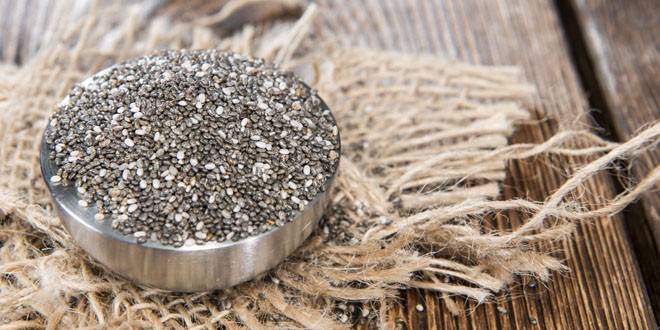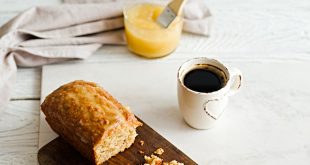Chia seeds are tiny black seeds from a plant called Salvia hispanica, which is related to mint. The chia plant is native to South America, and was an important food for ancient Aztec and Mayan civilizations; in fact, the word “chia” means “strength” in the Mayan language. Chia seeds have a multitude of health benefits. Here are five facts you should know about chia seeds:
- Chia seeds pack a powerful nutritional punch. A 1-ounce (28-gram) serving of these tiny seeds contains 11 grams of fibre. Chia seeds also contain large amounts of calcium, magnesium, manganese and phosphorus, as well as goodly amounts of zinc, niacin, potassium and niacin. It may surprise you to learn that – besides containing all these nutrients – a 1-ounce serving contains only 137 calories (1 ounce = approximately 2 tablespoons).
- Chia seeds are high in antioxidants. The antioxidants contained in chia seeds protect the fats in the seeds from going rancid. The antioxidant content in foods (but not antioxidant supplements) plays an important role in the body’s general health: antioxidants have been studied extensively regarding the prevention of diseases such as cancer, heart disease and even air sickness.
- Chia seeds are an excellent source of protein. A 1-ounce serving contains 4 grams of protein, about 10% of the recommended daily intake. Protein has a number of health benefits, and is one of the most weight-loss friendly nutrients in our diet; a number of studies have shown that ingesting high levels of protein reduces your appetite.
- Chia seeds may improve heart health. In two studies, participants, who ate a diet that contained chia seeds, soy protein and oats had reduced LDL-cholesterol (the “bad” cholesterol) and triglyceride levels, and increased HDL-cholesterol (the “good” cholesterol) levels. In a study of people with diabetes, participants in one group consumed 37 grams per day of chia seeds for 12 weeks, while participants in another group consumed 37 grams of wheat bran per day. At the end of the study, the participants who had consumed the chia seeds showed lowered blood pressure, by between 3 and 6 mm/Hg. A more recent study has also shown that they may be beneficial for weight loss.
- Chia seeds can easily be incorporated into your daily food plan. The seeds are actually rather bland tasting, so they can be added to almost anything; as well, they needn’t be ground up (unlike flax seeds), which makes them easier to prepare. You can eat a handful of raw chia seeds throughout the day, or you can add them to hot cereals, puddings or baked goods. You can also sprinkle them on top of cereal, yogurt, vegetables or rice dishes.
If you liked this article, you can find other healthy eating ideas in this Diabetes Diet section.
 Diabetes Care Community Learn, connect and care
Diabetes Care Community Learn, connect and care




